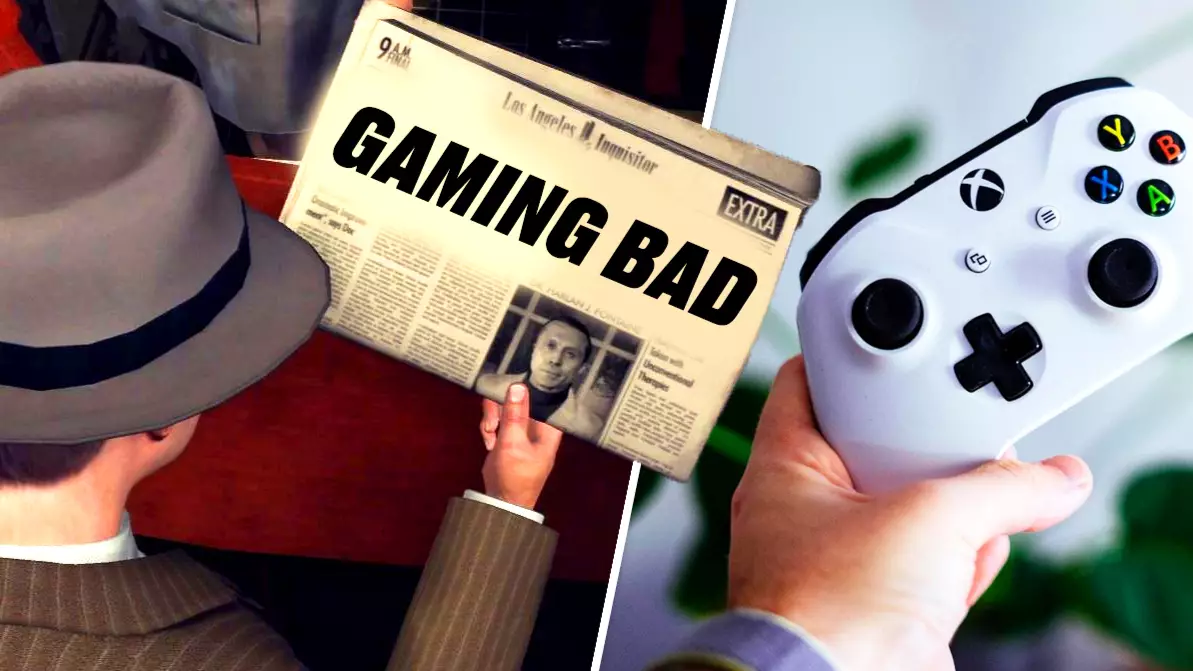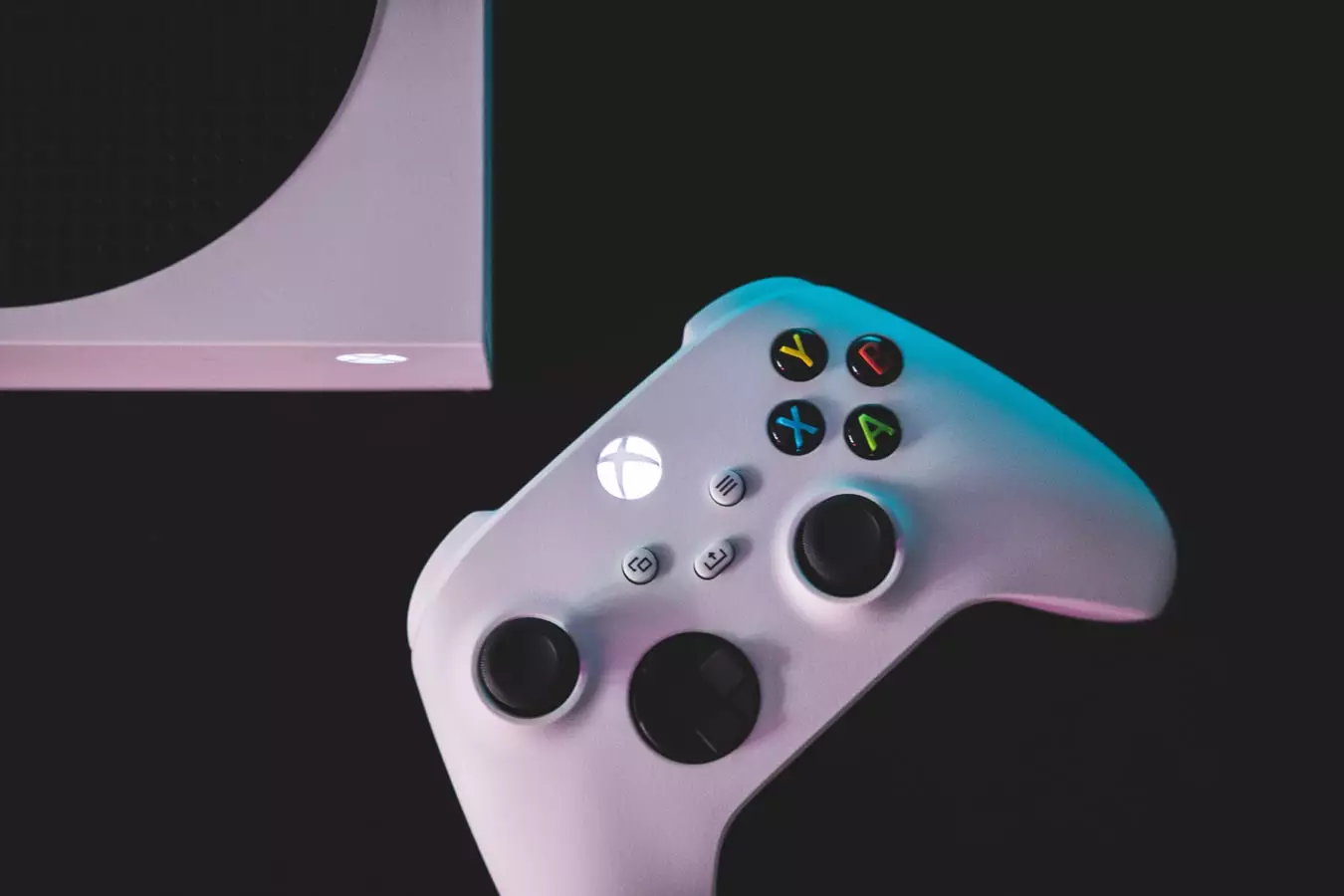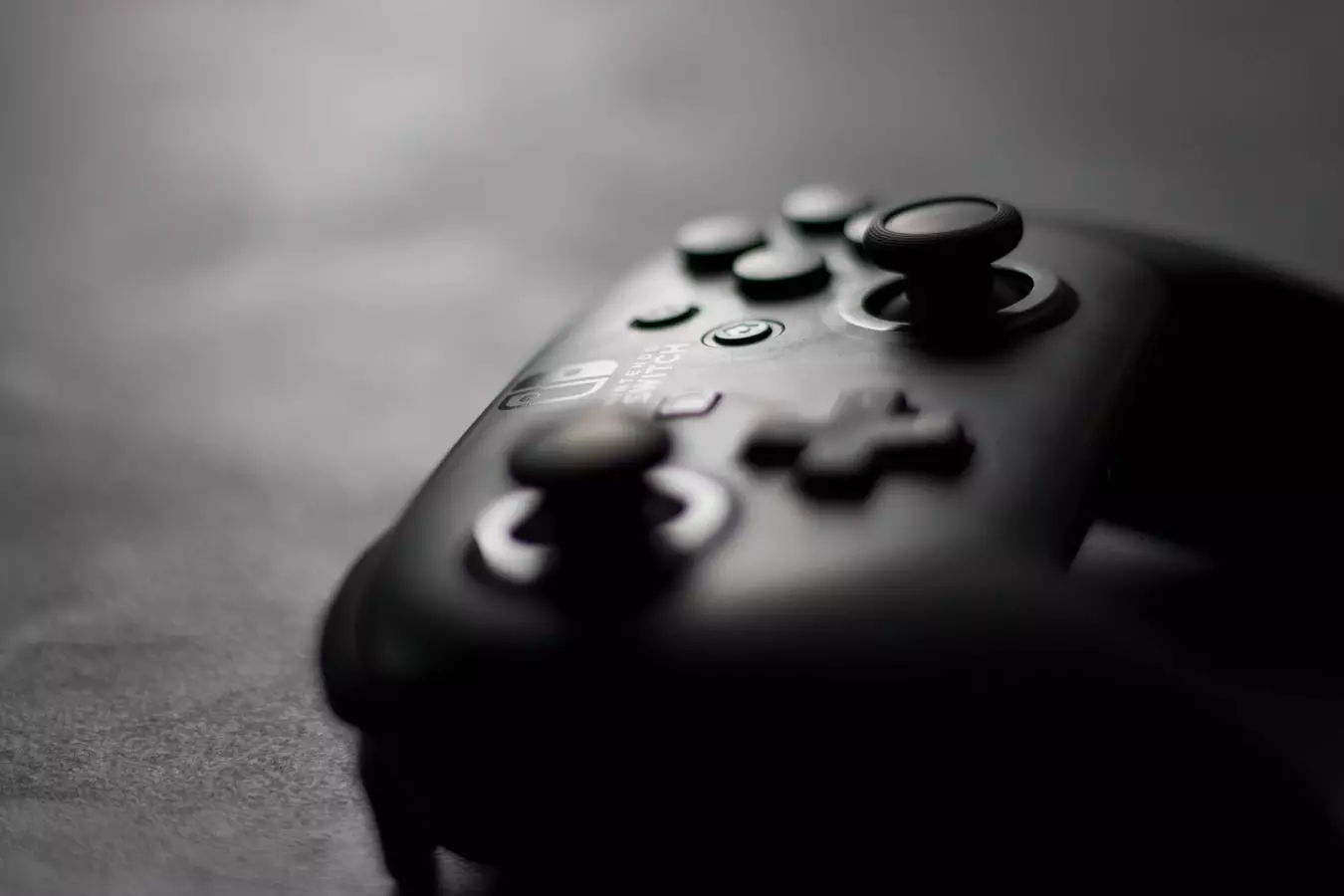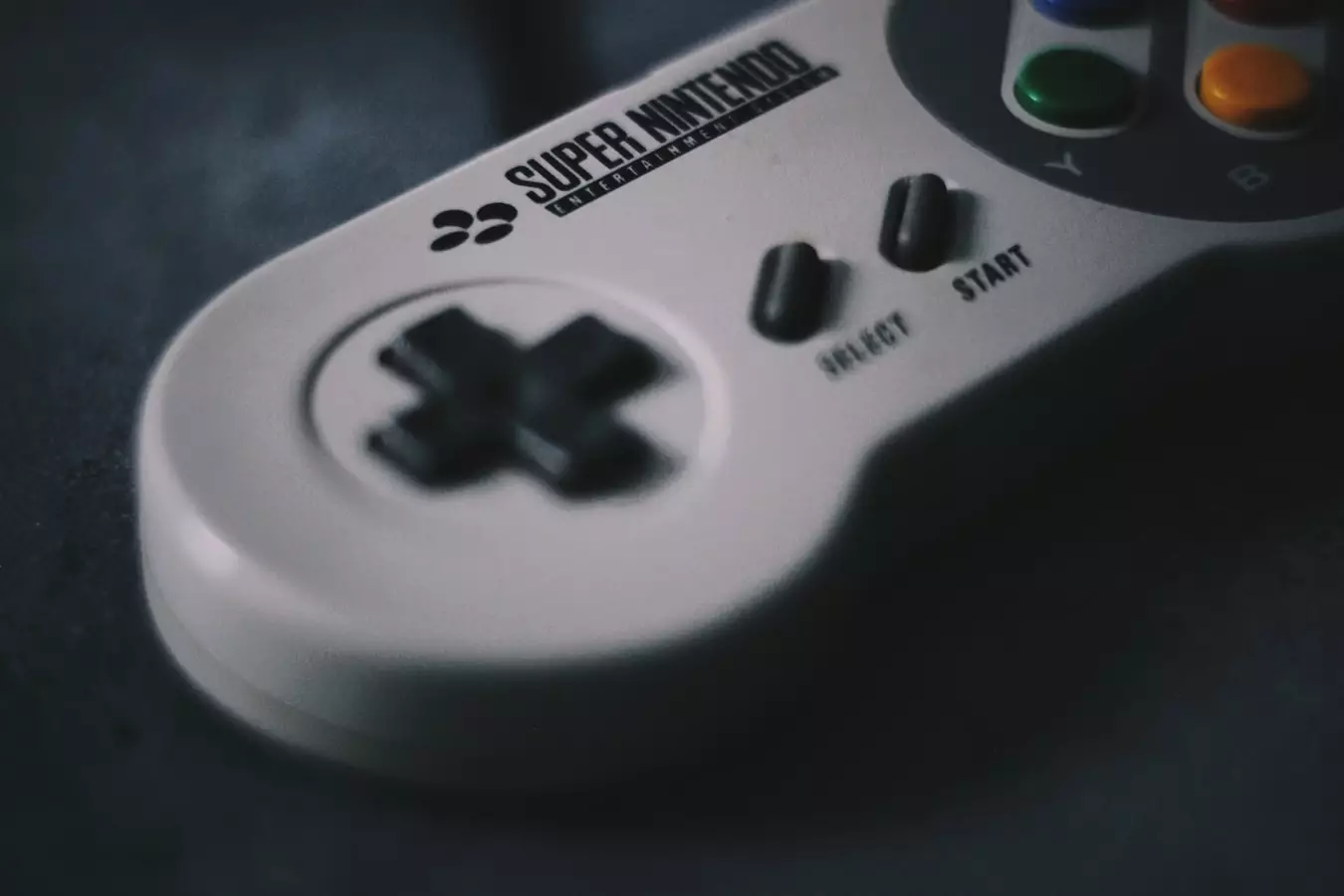
Anyone who's grown up playing games, loving games, and wearing that affection on their sleeves, has had it weaponised against them at some point. As much as we, as gamers (if we must), reclaim words that once wounded, like nerd and geek, and shatter stereotypes, many of us have had our passion used as a rod to batter us with, by bullies who see it as a hobby to be ridiculed. It might not be explicit, it might not be barbed, but it's been there. You like what? You do what? I'd love to say it eases as you age, but, no.
But the biggest bully of all, in my lifetime, has been the tabloid press. The British red-tops, the newspapers that pioneered clickbait before the internet even birthed the term and then so quickly forgot its actual meaning. Gaming perhaps isn't in the firing line as often it was in the 1980s and 1990s, when I was a kid; but if anything that makes its demonising all the more striking in the present day, when gaming is the biggest entertainment medium in the world.
Advert
Despite what some tabloids might still say, video games do not make you violent, as our video below explains
On the weekend of May 1-2, The Mirror's website ran the story of a tragic event from October 2020. Simon Shanks, a 43 year old from Swansea in Wales, had been found unresponsive by a friend who'd stayed over at his house. Said friend called paramedics, but they were unable to revive Mr Shanks, and he was pronounced dead. A post-mortem confirmed the cause of death as an "unintentional overdose" - Mr Shanks was said to have struggled with drink and drugs, as well as mental health matters, and the post-mortem toxicology report found cocaine, methadone, and morphine in his system. His friend also noted that Mr Shanks had been drinking heavily after the collapse of a relationship.
The Mirror's article didn't run with a headline about the drugs, or the drink, or the raw sadness of a man in his 40s dying at home. It ran with, "Gamer found dead on sofa clutching Xbox controller after all-night session." And I am sure that, knowing what you now know of this story, you don't need me to explain why this headline is not only misleading, but also irresponsible and, frankly, disrespectful to Mr Shanks' family and friends. Its implication is extraordinary, but undeniable: video games killed this guy.
Advert

The report's standfirst doesn't clear things up, either, saying that Mr Shanks had "stayed up playing video games with a friend and was found unresponsive on his sofa, the following morning". It's the fifth paragraph before the reader is told of Mr Shanks' heavy drinking, and the eighth before the report confirms the presence of drugs in his system.
The Mirror's story is based on Wales Online's report from April 28, and it's not the only British tabloid to have picked the story up for a substantially larger readership. The Sun, also publishing on May 1, runs with the headline, "GAMER DEATH: Gamer, 43, found dead clutching Xbox controller after all-night session." The Daily Mail, to its base-level credit, at least finds space in its headline for the drugs element, writing: "XBox (sic) gamer, 43, was found dead clutching his controller after fatal drug overdose during a late-night session, inquest hears." The Metro also goes some way to transparency, but can't help but focus on the gaming connection: "Gamer dies with Xbox controller in hand after accidental overdose."

Advert
I'm not saying there's not a gaming element at play here - whenever there's a human story, painting a better picture of what made that human who they are is sure to aid connection, understanding, and empathy. But the way that the Xbox controller is said to be clutched in Mr Shank's hand, the emphasis on the all-night session, these are callbacks to an era of outright gaming vilification in certain sectors of the press - an era that I had thought we were long past.
In 2015, The Daily Mail covered the story of a teenage hacker by emphasising their love for games like Call of Duty, Resident Evil and Grand Theft Auto (as picked up by Eurogamer) - like those gaming mega-brands actively teach you how to how to infiltrate the inner-workings of TalkTalk. The same Mail story made a reference to right-wing terrorist and mass-murder Anders Breivik, and how he played Call of Duty as a training exercise.
In 2011, The Sun reported that a 20-year-old man had died as a direct result of his gaming habits, running with the headline "Death by Xbox" (as covered by Destructoid). The man died of a blood clot - something that can be brought on by all manner of circumstances (and speaking as someone who's had a blood clot, I certainly don't spend ten hours a day gaming) - and his own father said that he laid no blame for his son's death at Xbox's door. Nevertheless, The Sun's coverage was a lot less about regularly getting up from your chair, and a lot more about how video games will kill you.

Advert
And this stuff goes back to when video games were but a twinkle in the eye of opportunity, a fledgling industry just breaking with purpose into arcades. It goes back to games that aren't video games, at all. When 17-year-old student James Egbert left a suicide note and disappeared in the summer of 1979, tenuous connections were drawn to his love of Dungeons & Dragons, leading to the American media covering the role-playing game like they never had before - and certainly not in a positive light. When Egbert tragically did kill himself, in 1980, a panic stirred in the States - just how dangerous was this game, for your kids? D&D had been wrongly implicated, but the damage was done: schools and parents alike banned the game. The Egbert case would inspire the novel Mazes & Monsters, popularising the negative connotations even when the actual investigator into the teenager's real-life disappearance and death dismissed any connection.
Unhealthy gaming habits can lead to health complications and even death, but those habits are always part of a bigger, sadder picture. In 2015, Simon Parkin wrote about the death of Chen Rong-yu in Taiwan, who would play League of Legends at an internet cafe for as much as 23 hours a day. In the wrong hands, such reporting would possibly have laid the blame on League of Legends, on its makers Riot, on video games in general. But, clearly, this was a man who had an obsession, and extreme health problems, and should have received help long before he deteriorated and was, ultimately, discovered dead.
Sadly, as Parkin notes, Chen's case isn't unique - and Parkin also mentions the first instance of the media covering "video game death", in relation to the story of 18-year-old Peter Burkowski collapsing after playing Berserk in an Illinois arcade in 1982. He died of a heart attack, most likely unrelated to the games he loved. But as we've seen in the decades since, that lack of a clear and unquestionable connection won't put newspapers off placing gaming front and centre of their coverage.

Advert
What's most saddening today, however, is that the likes of The Mirror, The Sun, The Metro and even The Daily Mail either have - or have had, recently - employees dedicated to the coverage of video games. I've met these very people, over the last few years - professionals, all of them, who care deeply about video games, about their place in modern culture, the possibilities of the medium, and its power to bring people together. Headlines like those relating to the death of Simon Shanks are a spear through their hard work, and wholly undermine their efforts to place gaming on a level of mass-mainstream acceptance like television, movies and music.
(I'm not oblivious to the fact that LADbible has, in the past, used gaming as the bait on stories that are distressing for other reasons, such as this example from 2019 of a teenager dying of a stroke that might have been connected with excessive play sessions. Nowadays, the GAMINGbible team liaises regularly with other editorial teams in The LADbible Group to ensure the tone and treatment of coverage is appropriate.)
I hoped we were past headlines like, "Gamer found dead after all-night session." Headlines that bury the real story beneath manufactured controversy, borderline actual-clickbait, and a bizarrely persistent hatred of something that inspires millions of people every day to achieve more, to go further, to be better. But, here we are: 2021, and with a global pandemic raging, we still have to take a moment to reflect on how some in the media just can't see past gaming being a phantom pain in the neck of a population that's actually over hollow horror stories, and/or leveraging the lightest connection for rampant hate-clicks. Xbox won't kill you, kids - but subscribing to the idea that gaming is for losers will only have you missing out on countless amazing adventures.
All controller photography by Kamil S via Unsplash
Featured Image Credit: Unsplash, Rockstar GamesTopics: Xbox, League of Legends, PC, Opinion, Call of Duty, Grand Theft Auto